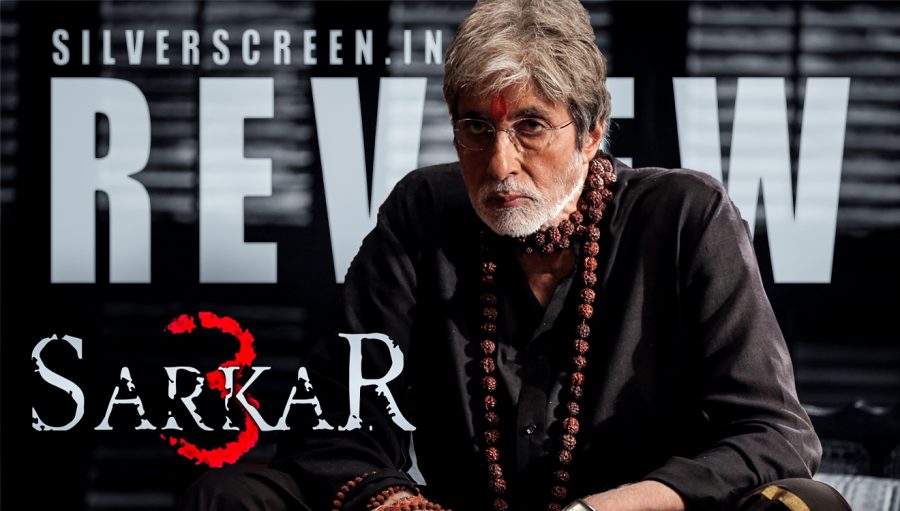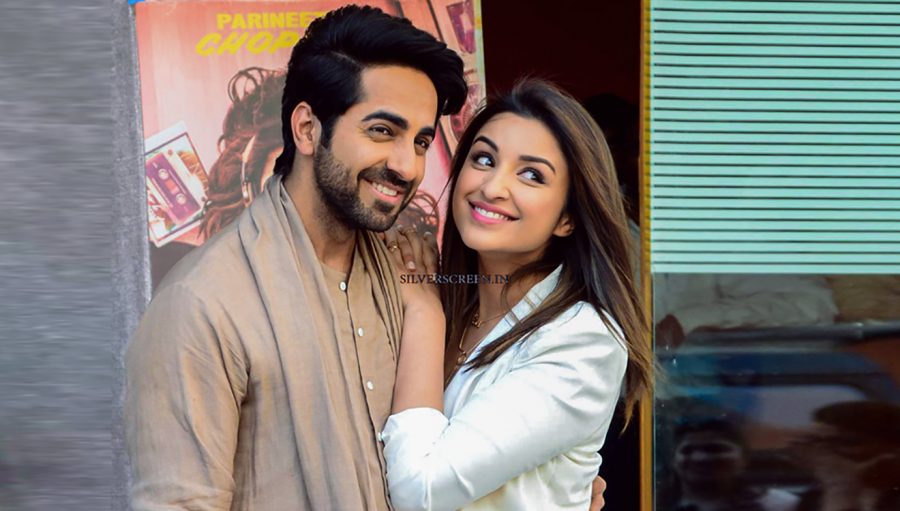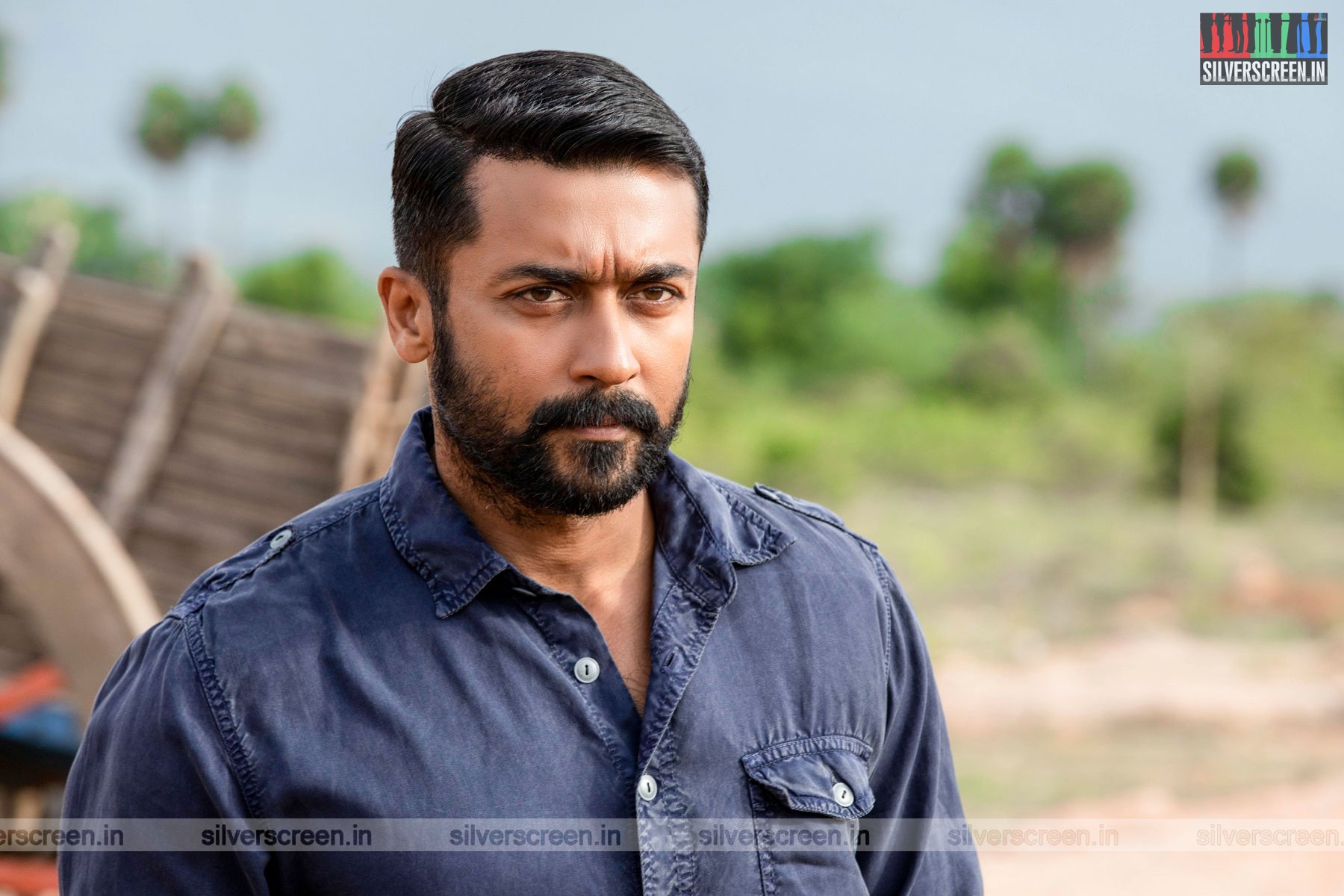The black kurtas, the beaded malas, the saffron tilak – the smoke-filled, poorly lit rooms are back in Sarkar 3, with Subhash Nagre (Amitabh Bachchan) at the forefront as usual. A dozen characters come and go. It’s nearly a decade later, and Nagre has significantly aged. More gaunt and subdued than before, he proves he hasn’t gone senile yet. And now he has his grandson Shivaji (Amit Sadh) by his side.
Blood is thicker than water – this is the theme of the third installment of the Sarkar series. And Ram Gopal Varma takes the audience on an excruciatingly long journey of 2.2 hours to prove it.
In the audience, a mother asks her daughter whether we’re watching a parody.
Judging by RGV’s sudden spurt of activity on social media, he doesn’t seem to have a handle on some things. Like the fact that the plot that worked so well in 2005 isn’t going to work today. And that’s why Sarkar 3 best resembles one of those numerous spoof videos on YouTube.
*****
Following a similar storyline as the first two films, in Sarkar 3 Nagre’s grandson joins him, irking Nagre’s personal aides and enemies. If the last two movies were anything to go by, messing with Nagre is going to prove costly. God-like and someone who speaks through his silence, Nagre faces a new challenge as his empire appears to visibly reduce – should he believe his own men or the new family member?
But in the process of getting to the crux of the story, RGV adds in a plethora of unnecessary moments and pointless characters. Manoj Bajpai, Yami Gautam, Ronit Roy, and a very creepy Jackie Shroff (with a canoodling girlfriend in tow) are all wasted in this film. If anything, you end up wondering what compelled them play these characters, especially when their roles look like underworld caricatures. They also frequently and inexplicably show up in scenes unannounced. Things get even more complicated when each tries to play the villain.
And when it’s not the confusing passing-the-parcel of the ultimate villain or the fact that subtlety is something most of the characters eschew (case in point: gritting your teeth to show anger), it’s the booming riff “Govinda Govinda Govinda!” played each time Amitabh utters his “punch” dialogue. And then, there’s the camera angles that shift faster than a tennis ball at a Wimbledon final. Sample this:
Nagre (over the phone): What do you want?
* dhan dhan dhaan *
Shivaji (speaking to him): I didn’t kill your man.
* piano keys going off-tune *
Nagre: Oh, is that so? Prove it.
* Govinda Govinda Govinda *
Meanwhile, the camera spins out of control.
*****
It’s ironic to call this film a political thriller because more than politics, it’s about family sentiments expressed via campy dialogues and dramatic music; and instead of thrills, every move remains predictable. When we get to the revelations at the ending, more than surprise and delight, there’s agony – at how predictable, convenient, and flat every little twist and turn was.
It wouldn’t be fair to compare the first two Sarkars with this one. Amitabh Bachchan, who probably knew that people would find inconsistencies in this film, went on record last week to say that the new one should be treated differently because people change and grow.
RGV doesn’t.
Recommended
He’s certainly had his good days, in the form of a struggling artist’s story in Rangeela (1995), a racy road movie like Daud (1997), the making of a gangster in Satya (1998), and a psychological thriller in Kaun (1999). A secret fan, I always hope for the best when his movies come out. But a tawdry depiction of a Godfather-like character and his family passing as a political thriller where even Amitabh looks completely uninterested, is not the weekend watch even the most ardent fan would hope for.
What’s worse? The ending leaves room for a Sarkar 4. And that is frightening.
*****
The Sarkar 3 review is a Silverscreen original article. It was not paid for or commissioned by anyone associated with the movie. Silverscreen.in and its writers do not have any commercial relationship with movies that are reviewed on the site.



